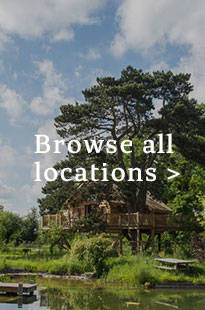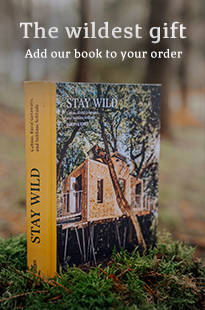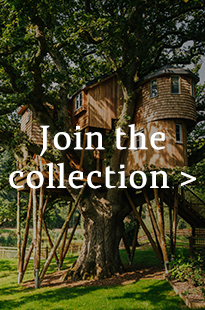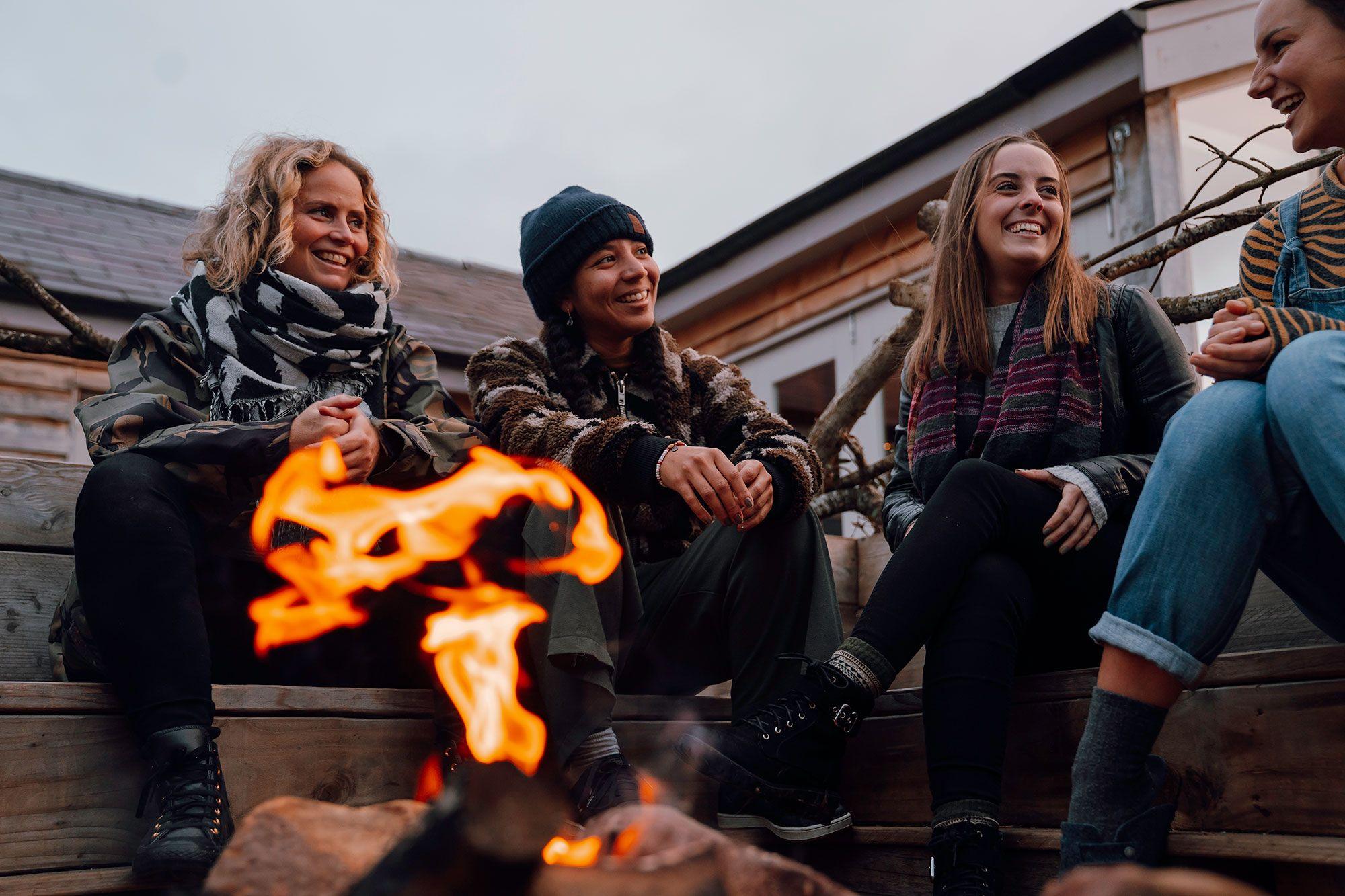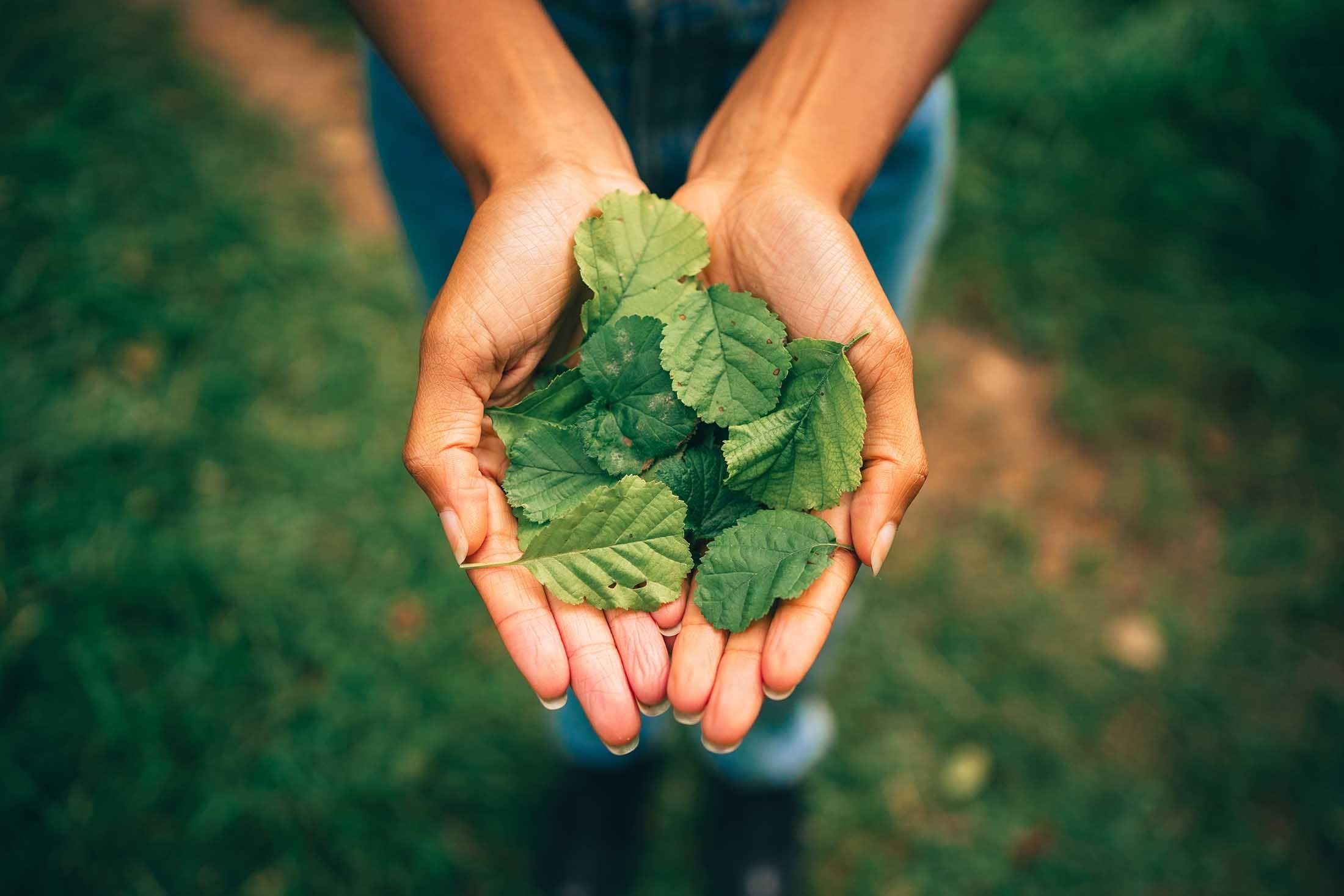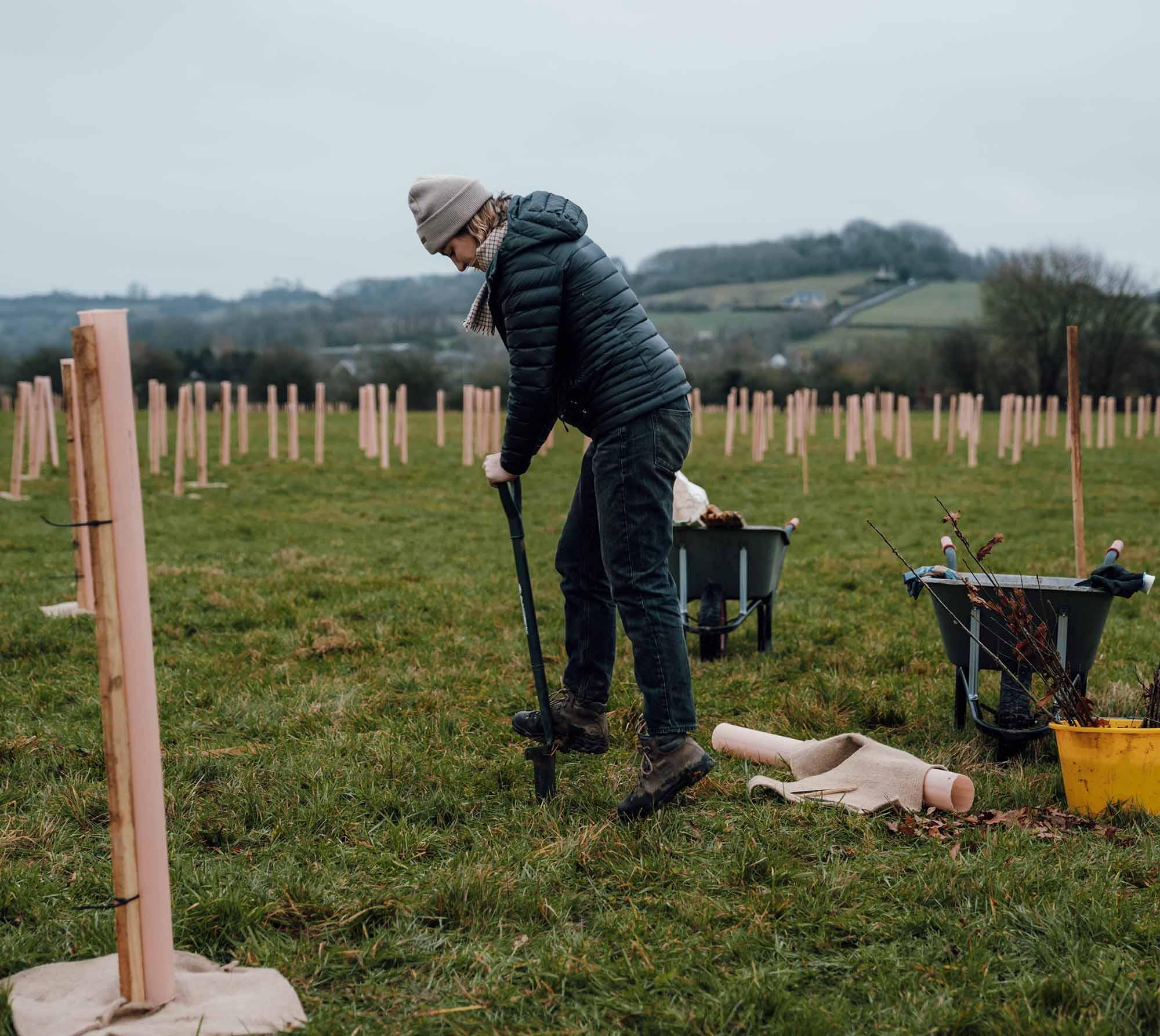- Location
- Glamping
Special occasions
- Stories
- Gift Cards
- About us
About Canopy & Stars
More from Canopy & Stars
More at Sawday's
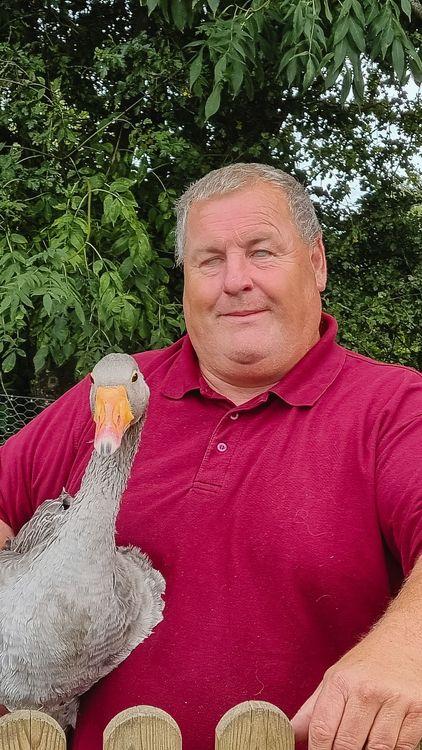
A Life More Wild - Series 3 Episode 10
Mike Duxbury
Mike Duxbury describes his mission to welcome students of all abilities, talks about the importance of connecting with the land, and explains the different coughs of pigs.
Despite having a passion for animals and farming, Mike Duxbury received only one offer from all the agricultural colleges he applied to. The rest dismissed him instantly, because he was blind. After graduating with an impressive array of qualifications, he became an accessibility consultant in London, but his heart was always with the land. He decided that rather than telling people how to run an inclusive business, he'd show them instead.
So for me it's about what I know the best, what I'm qualified to do. It's what I love doing. But it's also a demonstration of, you know... one thing about people with disabilities is we're great problem solvers. Because we have to solve those problems every day.
Join Mike now on Inclusive Farm, the working farm in Bedfordshire that he designed and built himself, as he describes his mission to welcome students of all abilities, talks about the importance of connecting with the land, and explains the different coughs of pigs.
So we've got the farm gate, about 30 yards away, right by a country lane. So you will hear cars fly by some people think it's Hangar Straight at Silverstone! And you might get a plane flying over, or a helicopter coming to make sure that I'm behaving myself. And we're on the flat while we're here, but the rest of the farm is on a hill going all the way up to I think, the moon! It feels like that some days.
So that's where we're at now. And I'm gonna take a little stroll up the farm and we'll meet the different animals in the different paddocks. And I'll try and give you a bit of a description of the farm as we're moving about so you can get a bit of a flavour of what we look like.
The whole purpose behind what we're doing here is a snapshot of what a farm should be. It's a full working farm, it creates its own income. But a big part of why we're here is that I think a lot of people were getting fed up of disabled people being ignored and also fed up of the world trying to do lots of things [for disabled people] that they thought disabled people should or shouldn't have. And I think it's now time that we decided what we wanted ourselves and what we could do ourselves and this is just a proof of what somebody who's totally blind can do, not what we can't do.
So now we're coming to the farmyard. On the left here we have two pig pens. Right hand side pigs, they are 15/16 weeks old. And some of these are going for the hog roast trade and they're predominantly white crosses. We'vee got large white Jura and a bit of Oxford Sandy in there. [LOUD HONKING Thank you geese!
All the pens on this farm have got a different frontage texture-wise. That allows me to tell me where I am, in the wind I can't hear where I am, so this tells me exactly where I am with just one touch. On the far left hand side. We have our new inmates. 12 large white piglets, they're about eight weeks old.
We also have matting on the floor that stretches from the fence out draw about five feet. And that just tells me and others who've got no sight, if we've got our arms full of buckets of feed or bales of hay or whatever, when our feet hit the mat, we are five feet away from the fences. So just helps for safety and tell us where we are.
Back in the 80s, when I started being involved with pig breeding, the majority of pigs were kept indoors. So their ability to charge off across a five-acre field was much less! So for somebody like myself, it fit with my own, if you like mobility, to handle them in more confined areas. And that just suited me and then it seems to go together really well. Obviously now more and more pigs are outdoors, including mine, but, you know, my knowledge of pigs, or my working ability with pigs is probably second to none. Because I've been doing it for 37 years. There's not a lot I haven't come across. I've learned all the mistakes, and I'm still making some! But pigs are just fascinating creatures, and they bring me an awful lot of joy.
When you say you could hear where you are, to what sort of degree?
Yeah, listen, don't look. Listen. That's definitely piggly lapping from over there. Yeah. Lots of movement, snuffling. I can hear the straw. So you know, the pens are very close. This is what a lot of people don't do. They don't close their eyes and listen. And that actually in many, in many ways, will save a lot of farmers a lot of grief because I stand here and listen, and I can smell or hear if there's any animal health problems.
From the breathing. You can listen for coughing, sneezing, laboured breathing. They're happy and alive. So this is why I say to people, sometimes you just got to get your head over the fence or get in there, whichever you want. And listen. A lot can be told. These all sound really happy. There's no coughing or sneezing, no laboured breath. I can't smell anything else other than what should be there, they haven't had any fresh straw yet so I can smell that. But they've all been fed recently. So they're all just finishing off feeding and you can tell that just by listening.
The big point of what we're doing is to encourage other industries to look at themselves and what their own employment ethics are about. You know... how many people the car industry, the steel industry, the rail industry, how many of those are employing disabled people? The answer is I don't know. What I do know is that less than 800 people who have got disabilities work in the whole of the agriculture, food and fisheries industry. That is quite pathetic.
What we also know is that 90% of blind people in the UK are unemployed. 70% of autistic people are unemployed. So from that your own draw your own conclusions on how well we're doing. The beauty here is that we built it according to my own needs. So we haven't taken a farm and modified it. We've just taken an idea out of my head and the fury of seeing people like myself, who have not got the strength to fight for themselves being denied of jobs, being denied places at colleges, denied environments that that able bodied people take for granted.
So... I can hear pigs eating. I can hear the clang, a metallic noise and I know that's a pig with its nose or feet in the trough. Over to my right I can also hear geese gently clucking a bit. If I go over there now they'll make a lot of noise.
Charlie! [GEESE HONKING] We've got Charlie who's hand-reared. She likes being picked up and having a cuddle, although she's a bit too big for that now. Then we got Billy, the gander, who's enormous. Somebody asked me, do you ever have any problems with foxes? The answer is, if you're a fox, would you come anywhere near these guys? So the answer is no, we don't. Charlie was the first animal on the farm after it was built. It was just amazing. Because you know, everything up to that point was always... is it ever going to happen? Could we do it? So it was it was just a really amazing experience. Then we had a few pigs arrive and it just really snowballed from there.
When I decided I wanted to go to go to college all those centuries ago, it feels like, there were 36 agricultural colleges in the UK. I got 35 rejections. And I had some very interesting letters, one of which I've kept, because it was the most interesting response. And I think, without naming any names, it was a bit like "thank you for your letter, Mr. Duxbury. Unfortunately, we are unable to allow you to attend our college as we are based on a main road." So if there's main roads out there, apparently blind people are stuffed.
But Warwickshire were great. They phoned me up, they said, thank you for your letter, would you like to come in for a chat with us? I met with the vice principal and the principal and the farm manager. And they said, look, we haven't got a clue about this, but we're willing to work with you. And so I said, well, look, I'll tell you what, let's make it easy for everybody. Let me come to work on your college farm for two weeks. And you assess my ability alongside what your expectations are for a regular student. And the rest is history. They used to beg me and plead with me to look after the pig units! Wich I did, because I just love pigs.
So now we've come to one of our bigger paddocks. And it's got a couple of cows in here. Well, they are two steers, or bullock's, whatever you want to call them. We got an Aberdeen Angus, called Willis and a Hereford called Bruce. I really love having them on site, and the beauty about this paddock was there's a shelter in it. And that was built by myself and two students, who've been told all their life that they are useless, can't do anything bla bla bla. They'd never been allowed to do anything by their families. Their lives were pretty miserable, actually. And they came out here and helped me build this. It was a very big, proud moment for us, for both of them. But also for us as well, knowing we got them from just sitting around doing nothing to building that actual shelter with me.
So you know, proud moments. Another little couple of paddocks, a small one with some ducks in it on the right, as we are now I don't know if we got any sounds, no ducks. And we got about 65 chickens on site producing eggs for us every day, plus, eight ducks.
If I was to be honest with you, where we're at in the project, now after two years, is where I thought we'd be after six years. Because you know, to build a fully working farm, stock it, get the students in, get them working to a level that's appropriate to the qualifications that they're doing. Have all the PR and the visitors that we get, and people just get it. A lot of the people come here who have got differences or disabilities, they just get it as well. Because it's been developed by somebody like myself who's got a disability, for them, who've got a disability. So we're all the same, if you like, level. It's not been put together by an able-bodied group of people to support those with disabilities.
And for a lot of them, they look at myself and they think well if he can do it, I can do it. Because I say it's nothing special, it just needed somebody to do it. For me, it's definitely about the impact of the students, the students who've come here, the ones that started coming here two years ago who have now completed their courses. The seeds of change in them and how they've developed, how they leave here completely different people to who came. To me that's the biggest reward ever.
If you haven't already, give us a follow on your podcast app. Tell a friend about the podcast, and check out @Canopy&stars on Instagram.

